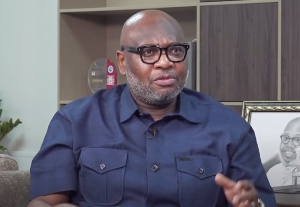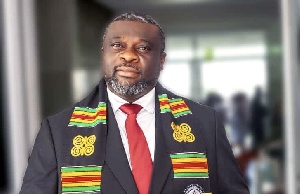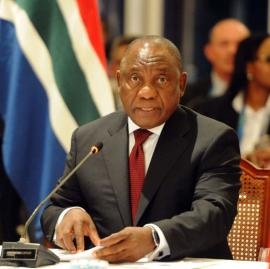Business News of Friday, 6 June 2025
Source: www.ghanawebbers.com
'We are chased every day' - Cocobod boss paints bleak picture of mounting $33bn debt
Dr. Ransford Anertey Abbey is the Acting CEO of Ghana Cocoa Board (Cocobod). He recently revealed that Cocobod has a staggering debt of about $33 billion. There are no immediate plans for financial recovery.
On June 5, Dr. Abbey spoke on Joy News’ PM Express Business Edition. He described the serious situation facing Cocobod, a key regulatory body in the cocoa sector.
“The last time I checked, that debt was close to $33 billion,” he said. He noted that the dollar amount might change due to the cedi's performance.
Cocobod faces immense pressure from suppliers, contractors, and banks. Many of these creditors have not been paid for several years.
“We owe agrochemical suppliers over $400 million,” he stated. He mentioned that many companies were visiting his office seeking payment. The banks are also pursuing them for debts owed.
Dr. Abbey highlighted ongoing legal and financial challenges at Cocobod. “Every day, I’m dealing with solicitor letters or court issues,” he explained. These issues arise from debts owed to various parties.
He clarified that the Cocoa Roads Programme is not the main cause of their debt. “People assume that the $21 billion is part of our total debt,” he said. In reality, only $4.4 billion relates to certificates raised at their cash office.
The rest involves contracts that have not yet been executed or certified. Dr. Abbey mentioned they are reviewing these contracts to determine which can be canceled or transferred.
He pointed out past financial mismanagement regarding jute sacks procurement. “They issued an irrevocable letter of credit for $48 million in December 2024,” he explained.
This was despite having over 110,000 jute sacks unclaimed for three years already. New shipments of jute sacks have started arriving now.
Once documents are presented to the bank, payment will be made under this arrangement, according to Dr. Abbey’s explanation.
When asked if Cocobod could balance its books soon, Dr. Abbey acknowledged it would be challenging ahead.
“Our first task was to figure out how we’re going to deal with it,” he said. They projected it would take four years to stabilize finances but must now reassess due to changes in currency value.











